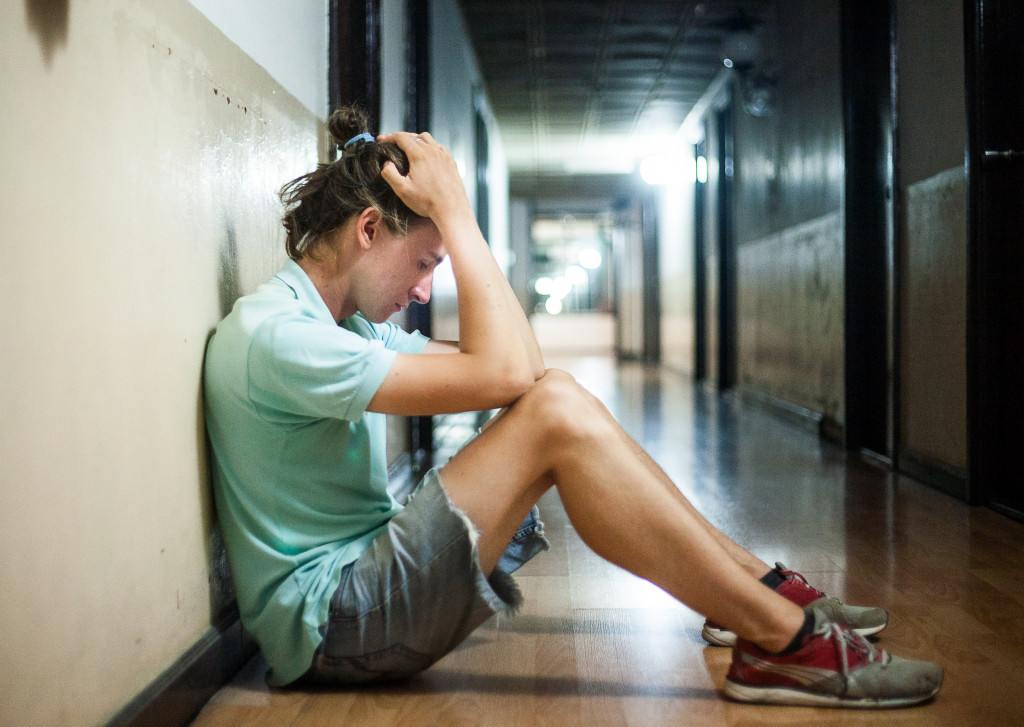Disclaimer: This website provides health information for educational purposes only and is not a substitute for professional medical advice, diagnosis, or treatment. Always seek the guidance of a qualified healthcare provider with any questions you may have.
• Trauma can cause lasting damage to mental health, such as anxiety, depression, and PTSD.
• People may feel changed after experiencing trauma and have difficulty with everyday tasks.
• Physical health effects, such as fatigue and chronic pain, can also result from trauma.
• Coping strategies like intensive therapy, mindfulness, relaxation techniques, support groups, and medication can help you manage the effects of trauma.
• Professional help should be sought if coping strategies are not effective or begin to interfere with everyday life.
Many people experience trauma at some point in their lives. Whether it’s a one-time event or something that happens repeatedly, trauma can have a serious impact on your mental health. Here are a few things you should know about how trauma can affect your mental health and what you can do to overcome it.
Trauma can cause lasting damage to your mental health.
If you’ve experienced trauma, you may be dealing with the effects for a long time. Trauma can cause both short-term and long-term problems, including anxiety, depression, post-traumatic stress disorder (PTSD), and other mental health conditions. It’s essential to get help if you’re struggling to cope with the aftermath of a traumatic experience.
You may feel like you’re not yourself after experiencing trauma.
It’s common to feel like you’ve changed after going through a traumatic event. You may have trouble sleeping, eating, or concentrating. You may also find that you’re more irritable or jumpy than usual. These changes are normal reactions to trauma and usually go away over time. However, if they last for more than a few weeks or make it difficult for you to function in your everyday life, it’s important to seek professional help.
Trauma can affect your physical health.

The physical effects of trauma are often overlooked, but they can be just as debilitating as the mental ones. After experiencing trauma, you may have trouble sleeping, which can lead to fatigue and other physical problems. You may also develop chronic pain or other health conditions as a result of the stress your body has been under.
Trauma can be overwhelming, but there are ways to cope.
It can be challenging to cope with the emotions that come after a traumatic experience. However, there are many different tools and techniques that can help you manage your feelings. These include the following:
Intensive trauma therapy
Intensive trauma therapy is a type of therapy that focuses specifically on helping you work through the emotions and feelings associated with trauma. It can help you process your experiences in a safe, supportive environment. Make sure you partner with a professional intensive trauma therapist who has experience treating trauma. They can help you develop coping strategies that work for you.
Mindfulness
Practicing mindfulness can help you manage your stress and increase your resilience to trauma. Mindfulness involves focusing on the present moment and being aware of what’s going on around you, as well as any emotions or physical sensations you may be feeling. There are lots of different ways to practice mindfulness, and it can be beneficial for managing trauma.
Meditation and relaxation techniques
Meditation and relaxation techniques such as yoga, deep breathing, or mindfulness can help reduce stress and anxiety. They can also provide an effective outlet for expressing difficult emotions. Meditation and relaxation techniques can help you find inner peace and gain a sense of control over your feelings.
Support groups
Support groups can be a great way to connect with other people who have gone through similar experiences and share your feelings in a safe environment. These types of groups are often run by mental health professionals and provide an opportunity for you to talk about your experiences without feeling judged or misunderstood.
Medications

In some cases, medications may be recommended to help manage the physical and mental effects of trauma. Medications such as antidepressants or anti-anxiety medications can be used in combination with therapy and other coping strategies to help lessen the impact of trauma on your life.
By knowing the ways you can cope with trauma and the potential effects it can have on your mental and physical health, you can take steps to manage these issues and get back to living a happy, healthy life.
Trauma can be a challenging experience to process and can have severe effects on your mental health. However, many ways exist to cope with the emotions that come after a traumatic event. You can find relief from trauma pain from intensive trauma therapy and support groups to mindfulness and relaxation techniques.
If these methods don’t seem to help or if they start to interfere with everyday life, it may be time to seek professional help. You will eventually find peace in the aftermath of trauma with understanding and care.




